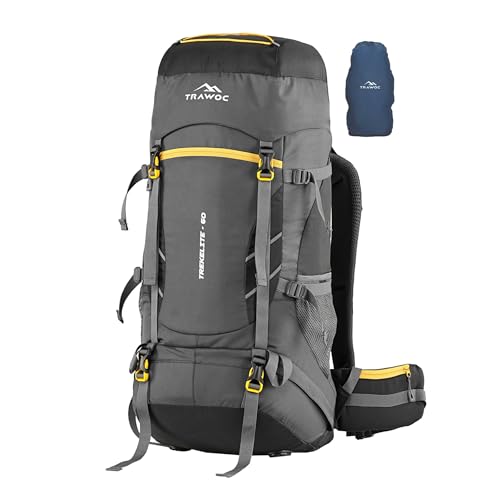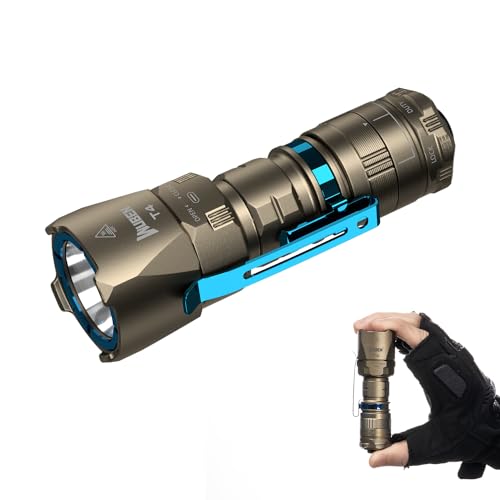- Joined
- Jan 6, 2013
- Messages
- 5,647
- Reaction score
- 11,333
1. The History
In 1852 the South Yorkshire Railway and River Dun Navigation extended its Worsborough Colliery branch line to Moor End pit at Silkstone. Two decades later the line was taken over by the Manchester Sheffield & Lincolnshire Railway. They promptly set about connecting it to the company's main line at West Silkstone Junction. The link opened in August, 1880 with the help of two tunnels; Silkstone No.1 at 289 yards and its shorter sister, No.2, to the east at a mere 74 yards.
Both tunnels were near the summit of the Worsborough incline. Here trains had to struggle up a 1:40 gradient for 3½ miles. Depending on the train, it would regularly require up to four locos including one or two bankers. Despite this, heavily-laden coal trains slowed to a crawl before reaching the top. Between 1925 and 1955 an LNER Class U1Beyer-Garratt locomotive, built specifically for purpose, played the role of banker; the longest and most powerful steam engine ever to run in Britain. The tunnels were poor in terms of air quality, so the Garratt's footplate crew trialed a respirator kit which took air from close to rail level.
The tunnels were separated by a deep cutting of approximately 150 yards in length. A curve to the south of 20 chains radius begins at the eastern end of No.1, extending through No.2 tunnel. Lined entirely in stone, signalling cables were hung from the up-side wall whilst a troughing route was provided at the foot of the other. Only No.1 tunnel was fitted with refuges for anyone working within it. After World War II , the Woodhead route, including the line through the tunnels, was prepared for electrification. This involved cutting small holes in the lining to house supporting structures for the overhead equipment. The remains of three such structures are to be found in No.2 tunnel.
The view from No.2 tunnel looking west towards No.1 tunnel circa 1983 two years after its closure. (c) Keith Long:
 Silkstone Tunnels.. by Keith Long, on Flickr
Silkstone Tunnels.. by Keith Long, on Flickr
The line from West Silkstone Junction was closed on 20th July 1981, coinciding with Woodhead's closure. Since then track-bed has used as an unofficial footpath for some years. It played a minor role in a major crime in January 1992. Michael Sams made his escape on a moped through the tunnels having collected a ransom for the release of estate agent Stephanie Slater, whom he had previously kidnapped. Mining subsidence has resulted in the eastern portal of No.1 tunnel to be buried and the western end has been fenced off, while the shorter No.2 tunnel remains open at both ends.
Map showing Silkstone link:
 20181126_180712 by HughieDW, on Flickr
20181126_180712 by HughieDW, on Flickr
2. The Explore
Having parked-up nearby, we followed the footpath eastwards, south of the line, until the cutting lessened in gradient so we could hop down onto the track-bed and loop back on ourselves. Thereafter, access to the much shorter No.2 tunnel was guaranteed. Although it’s very short, it’s very dry and free from graffiti. Pushing west in the very steep, rock-cut cutting between the two tunnels, the eastern entrance to No.1 tunnel is completely obscured by rubble and undergrowth. Hence, we walked back round to try and find the western entrance, but in the undergrowth and rain it proved to be to no avail. Hence the longer, more impressive tunnel evaded us. One for another day when it’s not pissing down with rain.
3. The Photos
OK, so how do we get down here?
 img9589 by HughieDW, on Flickr
img9589 by HughieDW, on Flickr
On the track-bed heading west to tunnel No.2:
 img9590 by HughieDW, on Flickr
img9590 by HughieDW, on Flickr
No.2 tunnel soon comes into sight:
 img9591 by HughieDW, on Flickr
img9591 by HughieDW, on Flickr
...along with its ineffectual palisade fence:
 img9594 by HughieDW, on Flickr
img9594 by HughieDW, on Flickr
Tunnel front detail:
 img9597 by HughieDW, on Flickr
img9597 by HughieDW, on Flickr
In, looking out:
 20181125_082025 by HughieDW, on Flickr
20181125_082025 by HughieDW, on Flickr
Looking eastwards:
 img9613 by HughieDW, on Flickr
img9613 by HughieDW, on Flickr
Looking westwards:
 img9609 by HughieDW, on Flickr
img9609 by HughieDW, on Flickr
 img9598 by HughieDW, on Flickr
img9598 by HughieDW, on Flickr
The western portal on No.2 tunnel:
 img9608 by HughieDW, on Flickr
img9608 by HughieDW, on Flickr
Next time for tunnel No.1:
 img9618 by HughieDW, on Flickr
img9618 by HughieDW, on Flickr
In 1852 the South Yorkshire Railway and River Dun Navigation extended its Worsborough Colliery branch line to Moor End pit at Silkstone. Two decades later the line was taken over by the Manchester Sheffield & Lincolnshire Railway. They promptly set about connecting it to the company's main line at West Silkstone Junction. The link opened in August, 1880 with the help of two tunnels; Silkstone No.1 at 289 yards and its shorter sister, No.2, to the east at a mere 74 yards.
Both tunnels were near the summit of the Worsborough incline. Here trains had to struggle up a 1:40 gradient for 3½ miles. Depending on the train, it would regularly require up to four locos including one or two bankers. Despite this, heavily-laden coal trains slowed to a crawl before reaching the top. Between 1925 and 1955 an LNER Class U1Beyer-Garratt locomotive, built specifically for purpose, played the role of banker; the longest and most powerful steam engine ever to run in Britain. The tunnels were poor in terms of air quality, so the Garratt's footplate crew trialed a respirator kit which took air from close to rail level.
The tunnels were separated by a deep cutting of approximately 150 yards in length. A curve to the south of 20 chains radius begins at the eastern end of No.1, extending through No.2 tunnel. Lined entirely in stone, signalling cables were hung from the up-side wall whilst a troughing route was provided at the foot of the other. Only No.1 tunnel was fitted with refuges for anyone working within it. After World War II , the Woodhead route, including the line through the tunnels, was prepared for electrification. This involved cutting small holes in the lining to house supporting structures for the overhead equipment. The remains of three such structures are to be found in No.2 tunnel.
The view from No.2 tunnel looking west towards No.1 tunnel circa 1983 two years after its closure. (c) Keith Long:
 Silkstone Tunnels.. by Keith Long, on Flickr
Silkstone Tunnels.. by Keith Long, on FlickrThe line from West Silkstone Junction was closed on 20th July 1981, coinciding with Woodhead's closure. Since then track-bed has used as an unofficial footpath for some years. It played a minor role in a major crime in January 1992. Michael Sams made his escape on a moped through the tunnels having collected a ransom for the release of estate agent Stephanie Slater, whom he had previously kidnapped. Mining subsidence has resulted in the eastern portal of No.1 tunnel to be buried and the western end has been fenced off, while the shorter No.2 tunnel remains open at both ends.
Map showing Silkstone link:
 20181126_180712 by HughieDW, on Flickr
20181126_180712 by HughieDW, on Flickr2. The Explore
Having parked-up nearby, we followed the footpath eastwards, south of the line, until the cutting lessened in gradient so we could hop down onto the track-bed and loop back on ourselves. Thereafter, access to the much shorter No.2 tunnel was guaranteed. Although it’s very short, it’s very dry and free from graffiti. Pushing west in the very steep, rock-cut cutting between the two tunnels, the eastern entrance to No.1 tunnel is completely obscured by rubble and undergrowth. Hence, we walked back round to try and find the western entrance, but in the undergrowth and rain it proved to be to no avail. Hence the longer, more impressive tunnel evaded us. One for another day when it’s not pissing down with rain.
3. The Photos
OK, so how do we get down here?
 img9589 by HughieDW, on Flickr
img9589 by HughieDW, on FlickrOn the track-bed heading west to tunnel No.2:
 img9590 by HughieDW, on Flickr
img9590 by HughieDW, on FlickrNo.2 tunnel soon comes into sight:
 img9591 by HughieDW, on Flickr
img9591 by HughieDW, on Flickr...along with its ineffectual palisade fence:
 img9594 by HughieDW, on Flickr
img9594 by HughieDW, on FlickrTunnel front detail:
 img9597 by HughieDW, on Flickr
img9597 by HughieDW, on FlickrIn, looking out:
 20181125_082025 by HughieDW, on Flickr
20181125_082025 by HughieDW, on FlickrLooking eastwards:
 img9613 by HughieDW, on Flickr
img9613 by HughieDW, on FlickrLooking westwards:
 img9609 by HughieDW, on Flickr
img9609 by HughieDW, on Flickr img9598 by HughieDW, on Flickr
img9598 by HughieDW, on FlickrThe western portal on No.2 tunnel:
 img9608 by HughieDW, on Flickr
img9608 by HughieDW, on FlickrNext time for tunnel No.1:
 img9618 by HughieDW, on Flickr
img9618 by HughieDW, on Flickr
Last edited:

































